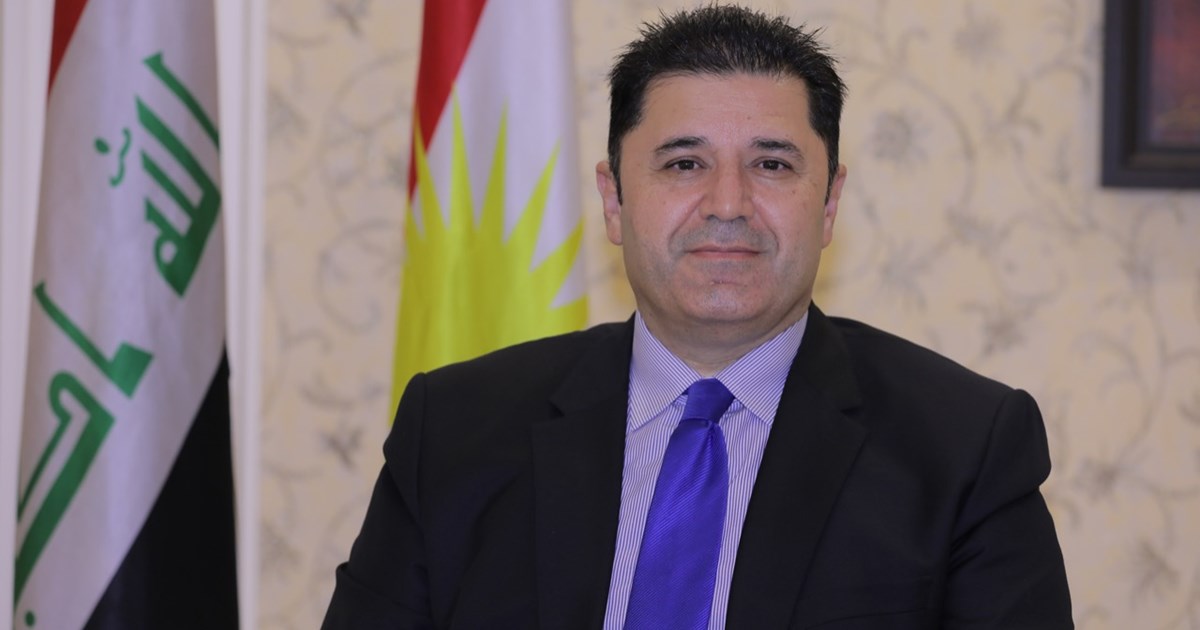More than 10 countries recognize Ezidi genocide

The German parliament recognizes the crimes against the Ezidi Kurds by ISIS terrorists as genocide, following the legal evaluations of investigators from the United Nations and after similar moves by some other countries including Australia, Belgium, and the Netherlands.
In an interview with the official website of the Kurdistan Region Government, Dr. Dindar Zebari, KRG Coordinator for International Advocacy, responded to some questions regarding the move.
The German parliament recognizes Ezidi genocide; how do you evaluate this decision and what is the KRG’s duty in this phase?
Dr. Dindar Zebari: The recognition of the crime against Ezidi and Kurds as genocide by German parliament is a significant move. Because Germany and Europe have a special role in the recognition process of this massacre. “Genocide, war crime, and crime against humanity” are three international crimes that have been under the focus of the United Nation’s Security Council since 2017 in dealing with this subject and an organization under the name of UNITAD [Investigative Team to Promote Accountability for Crimes Committed by Da'esh/ISIL] was established for this purpose. We, as the Kurdistan Region Government, are an important part of these efforts.
The German Parliament’s recognition of this crime which was committed against our Ezidi sisters and brothers is a significant step, both politically and emotionally. We are now collaborating with Germany and some other states in exchanging data, information, and research; we gave detailed data to Germany and others through UNITAD. Therefore, this process is important. It is collaborative.
The recognition by the German parliament and parliaments of other countries, which I believe so far have reached more than 10 states, is a significant step. The United State Security Council’s international team, which have their offices in Erbil and Duhok, will be one of the main political support bodies in the future trial of ISIS officials for all the three international crimes. In the Kurdistan Region, we have a High Committee for the recognition of crimes committed by ISIS and in our meeting last Wednesday, KRG reiterated its support for the German Parliament’s decision, Germany, and Dutch people.
After the genocide recognition, how will the process of compensation start?
Dr. Dindar Zebari: I believe the compensation process contains three phases:
First phase: It starts with conducting research, collecting data, and gathering information until we reach a resolution, and the process of trials begins. Regarding these stages, with the order of Prime Minister Masrour Barzani full support was given to the United Nation’s team and the international groups. Trials must continue, and compensations must be given to the victims through an international fund or by states. This step requires a lot of work and Iraq as well as the international community will be under enormous responsibility.
Second phase: It is a national mechanism linked to Iraq itself. Iraq passed a resolution on survivals of ISIS war and Ezidis are the main part of the list. This resolution has started its listing process and practically and legally has a very detailed mechanism on both returning and compensating victims: But offering the financial compensation to those entitled to it will require time and we as the Kurdistan Region Government are supporting the process.
Third phase: The last stage is returning more than 135 thousand Ezidi refugees who are now settled throughout 25 refugee camps in the Kurdistan Region. But the returning process is strongly linked to the political decision of implementing the Shingal agreement, which so far has not been implemented. Rebuilding authorization, mutual safety, and social security as well as the process of trails are significant parts of the compensation process.
How important are Ezidis for Kurdistan?
Dr. Dindar Zebari: The Kurdistan Region had 1700 martyrs and 11 thousand injured forces during the process of rescuing Shingle and surrounding areas from ISIS terrorists.
KRG’s efforts are enduring in the process of rescuing Ezidis and documentation of ISIS crimes against them. The government has done a great work in archiving information and providing detailed data to the international team. The trials of the terrorists began in Kurdistan and until now more than 1600 terrorists went on trial based on 2006 Anti-Terrorism law. In 2021 to 2022 alone, about 300 ISIS members were on trial in Kurdistan and trials continue.
What is the role of lobbying in convincing states to recognize ISIS crimes as genocide?
Dr. Dindar Zebari: In the regional level, KRG’s collaboration with the international team started in 2014. On the global level, hundred attempts have been made and dozens of gatherings were held from within the International Criminal Court and the United States Security Council to the Human Rights Council and Geneva. KRG’s support for the case is ongoing with the participation of all government representatives and personnel through diplomatic, legal, human, mental and emotional aids.
Are there any recent steps in this regard?
Yes, we will discuss ways to increase our visits and field work to help the process of recognition of these crimes. In a collaboration with the international team, we need to find more funding for our research projects and compensation for the victims.
January 29, 2023
